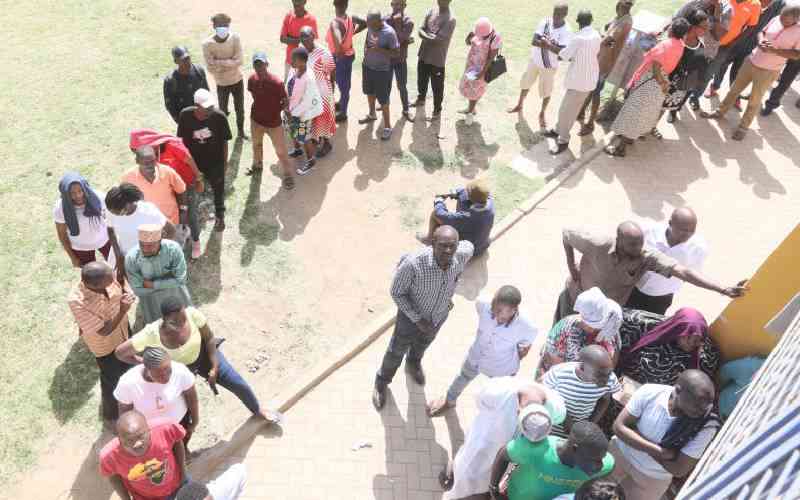×
The Standard e-Paper
Stay Informed, Even Offline

Thirty-five per cent of registered voters didn't bother to vote in the just concluded elections. Only 65 per cent showed up, a far cry from the 85.91 per cent of registered voters ten years ago in 2013.
Recently, I have been talking to Kenyans who did not vote to understand why they didn't. Their answers are so striking that we need to listen to their voice and respond accordingly.